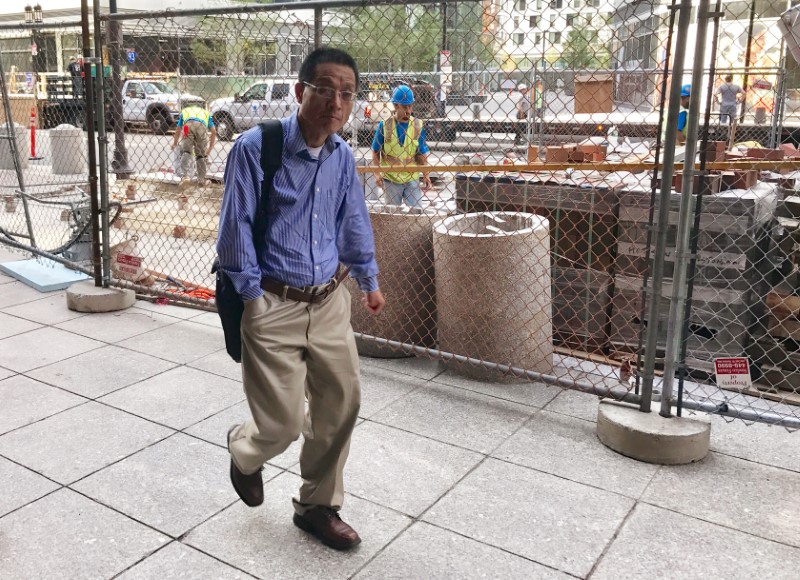By Nate Raymond
BOSTON (Reuters) - A former Akebia Therapeutics Inc (O:AKBA) employee accused of insider trading faced the growing possibility of having his bail revoked as a U.S. prosecutor argued on Thursday that he posed a flight risk and was growing "increasingly unhinged."
Schultz Chan, who had been the director of biostatistics at the Cambridge, Massachusetts-based biopharmaceutical company, has been free on $250,000 bond since arrest last year on charges brought by federal prosecutors in Boston.
But U.S. Magistrate Judge Donald Cabell on Thursday said Chan, 53, recently violated the terms of his release after refusing to answer his probation officer phone calls and would not acknowledge a knock at his door during a weekly check-in.
Cabell had ordered the weekly check-ins less than two weeks ago after prosecutors said that Chan's wife had booked airline tickets for herself, Chan and their daughter to fly to China.
At the time, Chan's lawyer, Peter Horstmann, called the matter an unfortunate misunderstanding, saying his client's wife had reserved an extra seat in his name because she wanted extra room on the flight.
But Assistant U.S. Attorney Stephen Frank called that explanation "not credible." At a prior hearing, Frank said he believed Chan had a "change of heart" after considering fleeing the country.
Frank told the magistrate on Thursday he was increasingly concerned that Chan may be a danger to himself and others, saying he has made threatening comments to his probation officer and the prosecution.
"He seems to be somewhat increasingly unhinged," Frank said in court.
Cabell declined Frank's request to require Chan to wear an ankle bracelet so that he could be electronically monitored.
But he said he would allow probation officers to check in with him more frequently, and warned Chan that if he returned to court again under similar circumstances, he might require electronic monitoring or revoke his bail altogether.
"You don't enjoy the benefit of the doubt anymore," he said.
Prosecutors said that from 2013 to 2015, Chan engaged in an insider trading scheme with a friend at rival drug company Merrimack Pharmaceuticals Inc, Songjiang Wang.
Prosecutors said Wang tipped Chan ahead of announcements by Merrimack about clinical drug trial results, and Chan likewise supplied Wang information ahead of news of positive clinical study results for an Akebia drug.
An indictment said Chan also used inside information to trade himself in Akebia stock in 2015.
Both men have pleaded not guilty.

The case is U.S. v. Chan, U.S. District Court, District of Massachusetts, No. 16-cr-10268.